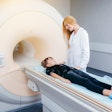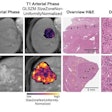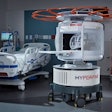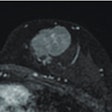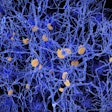Federal authorities have arrested Chinese researchers who worked on MRI technology at NYU Langone Medical Center for allegedly acquiring research money from the U.S. government and then sharing technological information with a Chinese company and government-sponsored research institute in China.
The May 20 arrests were carried out by the U.S. attorney for the Southern District of New York and the Federal Bureau of Investigation (FBI); they came after NYU Langone conducted its own internal investigation earlier this year, disclosing its findings to federal law enforcement officials. Two researchers were arrested and released on bail, while a third appears to have fled the U.S.
In a prepared statement to AuntMinnie.com, officials at NYU Langone stated they are "deeply disappointed by the news of the alleged conduct by its employees." The three researchers have been suspended, and the university is cooperating with the U.S. attorney's investigation.
Irregularities
NYU Langone officials in January became aware of possible irregularities involving research being conducted through a grant from the U.S. National Institutes of Health (NIH) to develop new MRI technologies.
The three researchers -- Yudong Zhu, Xing Yang, and Ye Li -- are each charged with one count of commercial bribery in connection with an alleged conspiracy to receive payments from Chinese company United Imaging Healthcare and the Shenzhen Institutes of Advanced Technology (SIAT), in exchange for nonpublic information about their research at NYU Langone.
The defendants are also alleged to have deceived the university and others about their professional allegiances to competing Chinese interests.
This case is one of "inviting and paying for foxes in the henhouse," said Manhattan U.S. Attorney Preet Bharara in a prepared statement. "These defendants allegedly colluded with representatives from a Chinese governmental entity and a direct competitor of the university for which they worked to illegally acquire NIH-funded research for the benefit of those entities."
'Accomplished researcher'
According to the complaint, NYU Langone hired Zhu to teach and conduct research related to MRI technology; Zhu came to the university in part to use a specific laboratory that featured highly specialized equipment to test MRI innovations. The document describes Zhu as "an accomplished researcher and innovator in the field of MRI technology."
In 2010, Zhu prompted the university to apply for a grant from the NIH -- which the university eventually received -- that provided $4 million in funding over a five-year period for his research related to improving the imaging capability of MRI equipment. After Zhu started his research, he arranged for Yang and Li to move to New York City from China to work with him in 2011 and 2012, respectively.
In November 2012, Zhu received a patent from the U.S. Patent and Trademark Office for an invention he called the constellation coil. The patent relates to the way radiofrequency coils are used in MRI systems to produce higher-quality MRI measures.
According to the complaint, NYU Langone only became aware of the patent in or near May 2013 as a result of its own internal investigation, which began earlier this year. The probe included the review of emails sent to and from university accounts used by the three defendants.
NYU Langone also confiscated and examined university-owned laptop computers that were used by Yang and Li, and installed surveillance cameras in a work area used by the three men and other university research staff.
"University officials were also concerned that Zhu, Yang, and Li were disclosing confidential proprietary information regarding both Zhu's NIH grant research and the research being conducted by [the university's] research team," the complaint states.
Camera surveillance
On or near April 15, university surveillance cameras captured Yang in a university research work area taking photographs of equipment designed by the research team. In addition, Li's university laptop contained photographs, taken on or around April 15, of equipment that was designed by the research team.
The university was able to determine that the three men had undisclosed affiliations with United Imaging and SIAT, and that Zhu and Yang had been communicating with those entities regarding MRI-related research that was the subject of the NIH grant. Each defendant also maintained an email address that included the domain united-imaging.com.
The complaint goes on to state that NYU Langone confronted the three defendants, interviewed them separately, and later disclosed details of its investigation to federal authorities.
Authorities allege that from 2011 to May 2013, the trio willfully conspired to have an executive of United Imaging provide financial benefits to Yang and Li in exchange for the three men acquiring certain research and nonpublic information at the university.
In January 2013, Li also accepted a position as a research associate professor at SIAT, and he received compensation from that institution while still working on the NIH grant in New York.
In addition, the document states that between February 2010 and May 2013, Zhu "knowingly altered, destroyed, mutilated, concealed, covered up, falsified, and made false entries in records, documents, and tangible objects with the intent to impede, obstruct, and influence the investigation."
According to the complaint, Yang stated that while working on the NIH grant at the university, he also shared research results from his and Zhu's work with individuals at United Imaging.
Zhu, who is an associate professor of radiology at NYU Langone, is also charged with lying about conflicts of interest in connection with the $4 million NIH grant. Zhu and Yang were arrested at their residences in New York City on May 20 and went before a judge yesterday, where they were released on bail. Li is believed to have flown to China before charges were brought.

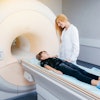

.fFmgij6Hin.png?auto=compress%2Cformat&fit=crop&h=100&q=70&w=100)


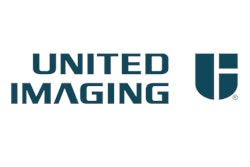

.fFmgij6Hin.png?auto=compress%2Cformat&fit=crop&h=167&q=70&w=250)
